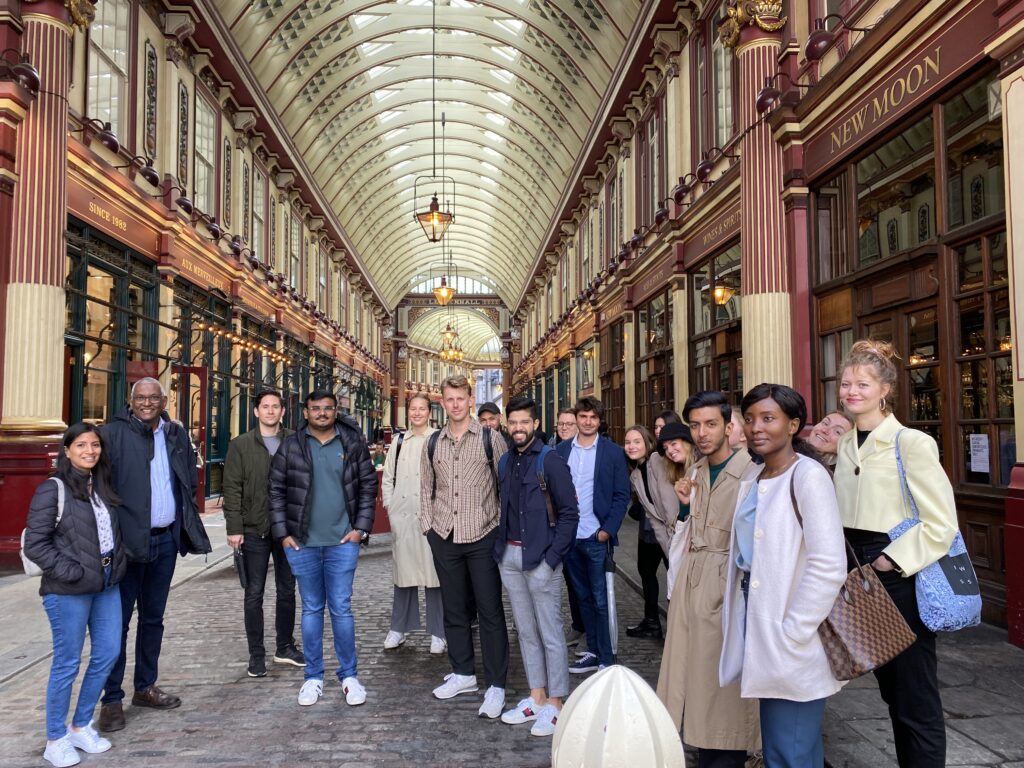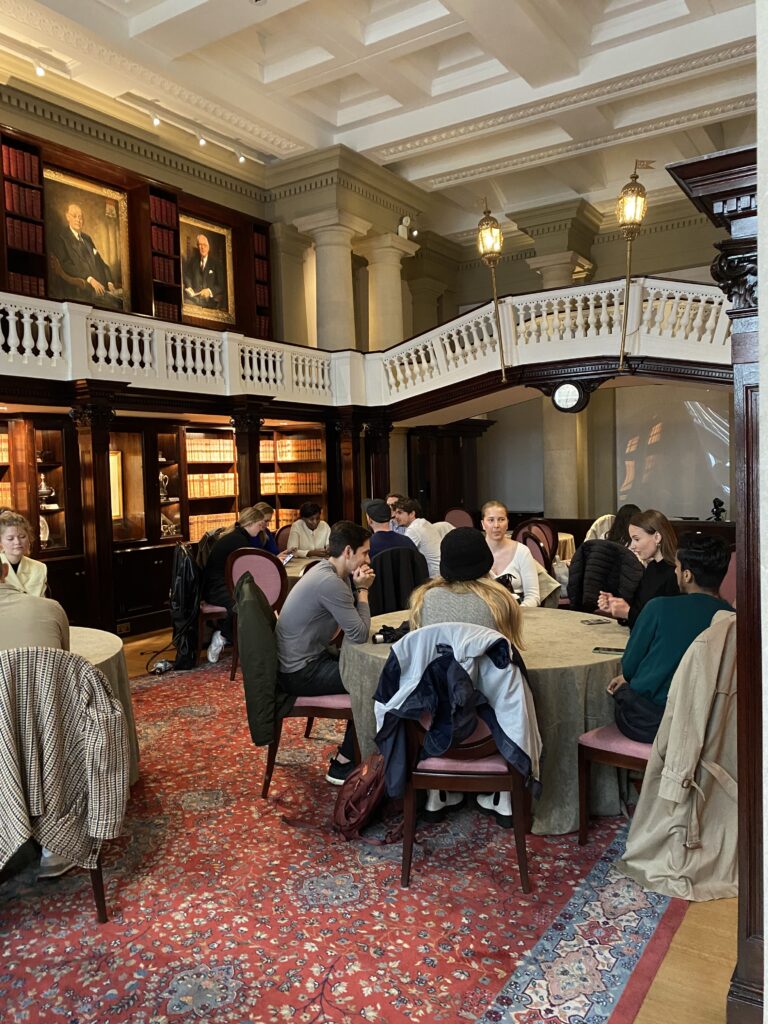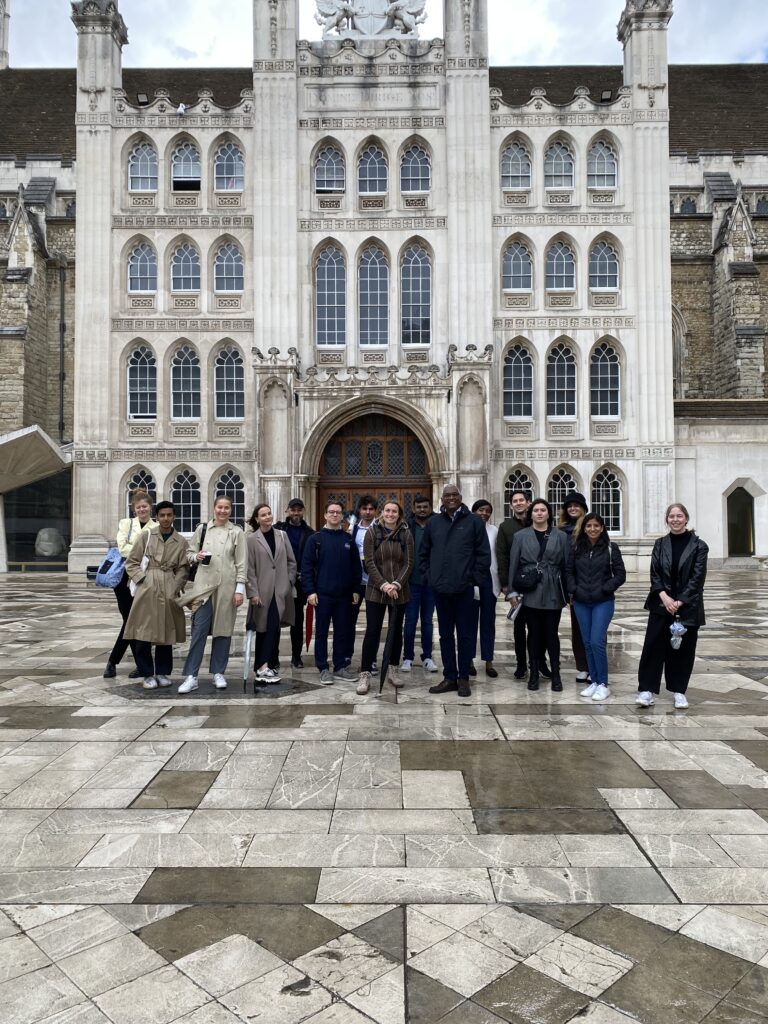PROFESSOR ATUL K. SHAH www.atulkshah.co.uk
Globally renowned expert advisor and broadcaster on culture, accounting, finance, business ethics, holistic education and leadership

The City of London (also known as the square mile and world financial hub) is pregnant with financial history. At one time there were 104 churches in this concentrated area. It also saw the invention of many of the core financial institutions which have become normal in finance today – central banking, stock exchange, insurance, bond issuance and trading, foreign exchange trading, metals trading … However, if you were to study finance anywhere in the world today, you are very very unlikely to study its history.

Just as a picture speaks a thousand words, a field trip can speak a ‘thousand lectures’. It is memorable, experiential and also possible to travel back in time whilst living in the present! I am grateful to Dean Ian Dougal for giving me this rare opportunity to take the students, and to Marilyn Greene for providing me with excellent historical research. Among the highlights were visit to a Bedouin Tent on Bishopsgate which is St Ethelburgas Centre for Reconciliation and Peace.

This provoked many discussions and dialogues about how grounded finance can promote humility and contentment, instead of greed and egoism. We explored the architecture of finance, and could see how the culture and values influenced physical spaces too. We were then delighted to have a conference in the afternoon at the ICAEW with Yajur Haria as visiting speaker on ESG and John Boulton gave us a guided tour of the history of the ICAEW, one of the oldest accounting professional bodies in the world.

Hult Masters student Stella Kok explained:
‘The field trip was inspirational on so many levels. It was really good to have a lot of room for discussion, and having the time and freedom to share opinions, I think by doing that I learned the most from my fellow classmates, whilst also engaging with the course. I think a course like this is really important for any finance student, as it shows the broader sense of what finance is and means to the world and our future!’
Policy Director at the ICAEW John Boulton remarked:
‘This is a very interesting approach, and the sustainable finance principles really resonate with me.’
Head of ESG at Reddington, Yajur Haria reflected:
‘It is critical that young people are exposed to the history and essence of finance, not just the calculations and techniques. The truth is far deeper than the measurements and analytical tools.’
The feedback demonstrated that exploring the ethical foundations of finance, and the role of trust, faith, relationships and tradition can help in identifying sustainable principles which can be applied universally. Today there are 1600 licensed alcohol premises in the same square mile, showing how addiction has replaced faith as the driver of financial culture. This power is deeply damaging and corrupting, and completely unsustainable. At the end of the course, we reflected on all the experiences and here is the list of personal values, leadership and moral concepts we came up with:
SUSTAINABLE FINANCE PRINCIPLES
- Patient capital
- What counts cannot be counted
- Culture and diversity
- Profit with purpose
- Organic growth
- Humility of finance leaders
- Detachment – Take finance personally – no cognitive dissonance
- Trust and Community – Belonging helps
- Intuition – Conscience, Experience, Listening
- Responsibility and Accountability
- Incentives
- Risk – Culture and Uncertainty
- Holistic Investment Appraisal
- Values NOT Value
- Relationships AS capital
